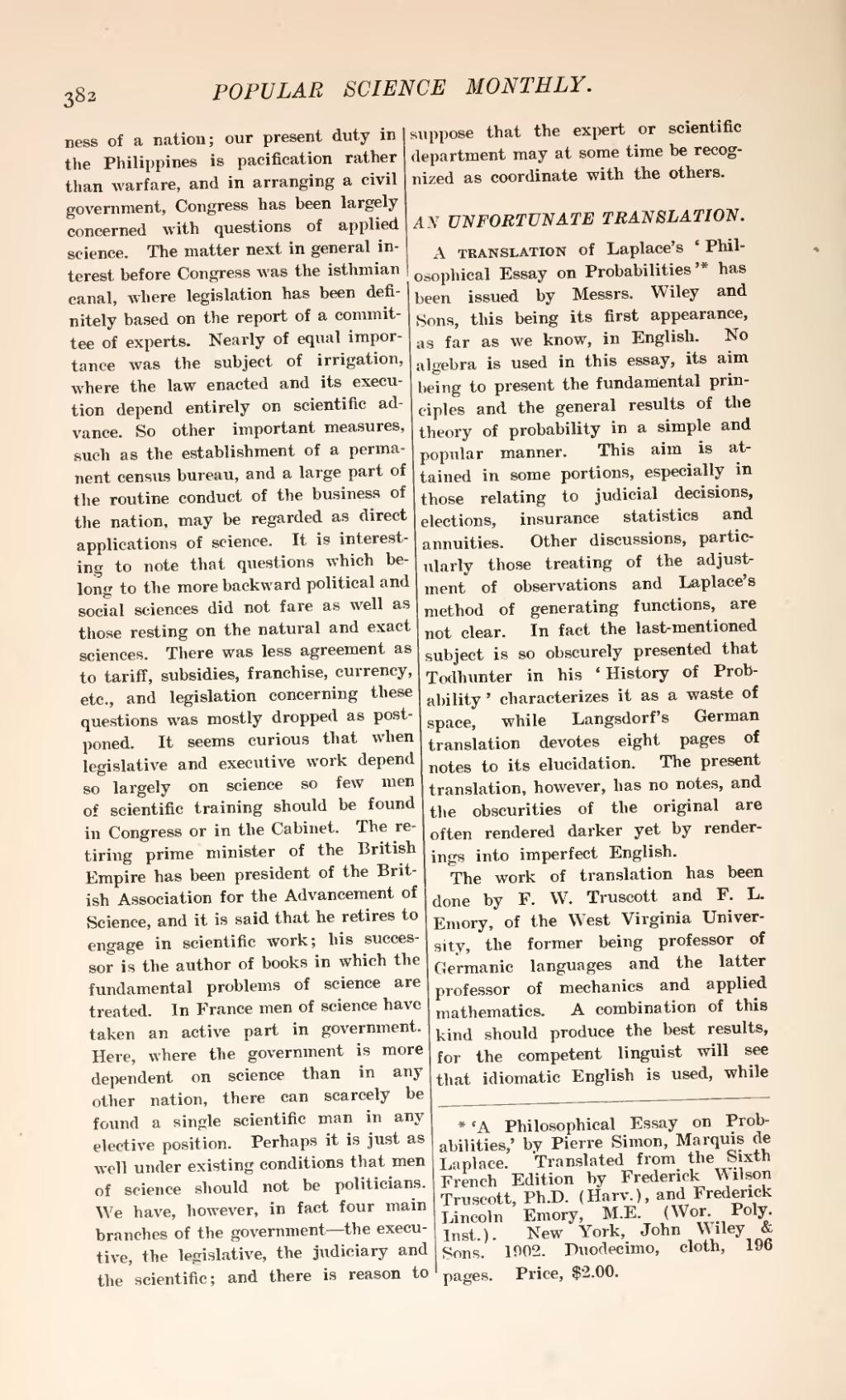ness of a nation; our present duty in the Philippines is pacification rather than warfare, and in arranging a civil government, Congress has been largely concerned with questions of applied science. The matter next in general interest before Congress was the isthmian canal, where legislation has been definitely based on the report of a committee of experts. Nearly of equal importance was the subject of irrigation, where the law enacted and its execution depend entirely on scientific advance. So other important measures, such as the establishment of a permanent census bureau, and a large part of the routine conduct of the business of the nation, may be regarded as direct applications of science. It is interesting to note that questions which belong to the more backward political and social sciences did not fare as well as those resting on the natural and exact sciences. There was less agreement as to tariff, subsidies, franchise, currency, etc., and legislation concerning these questions was mostly dropped as postponed. It seems curious that when legislative and executive work depend so largely on science so few men of scientific training should be found in Congress or in the Cabinet. The retiring prime minister of the British Empire has been president of the British Association for the Advancement of Science, and it is said that he retires to engage in scientific work; his successor is the author of books in which the fundamental problems of science are treated. In France men of science have taken an active part in government. Here, where the government is more dependent on science than in any other nation, there can scarcely be found a single scientific man in any elective position. Perhaps it is just as well under existing conditions that men of science should not be politicians. We have, however, in fact four main branches of the government—the executive, the legislative, the judiciary and the scientific; and there is reason to suppose that the expert or scientific department may at some time be recognized as coordinate with the others.
AN UNFORTUNATE TRANSLATION.
A translation of Laplace's 'Philosophical Essay on Probabilities'[1] has been issued by Messrs. Wiley and Sons, this being its first appearance, as far as we know, in English. No algebra is used in this essay, its aim being to present the fundamental principles and the general results of the theory of probability in a simple and popular manner. This aim is attained in some portions, especially in those relating to judicial decisions, elections, insurance statistics and annuities. Other discussions, particularly those treating of the adjustment of observations and Laplace's method of generating functions, are not clear. In fact the last-mentioned subject is so obscurely presented that Todhunter in his 'History of Probability' characterizes it as a waste of space, while Langsdorf's German translation devotes eight pages of notes to its elucidation. The present translation, however, has no notes, and the obscurities of the original are often rendered darker yet by renderings into imperfect English.
The work of translation has been done by F. W. Truscott and F. L. Emory, of the West Virginia University, the former being professor of Germanic languages and the latter professor of mechanics and applied mathematics. A combination of this kind should produce the best results, for the competent linguist will see that idiomatic English is used, while
- ↑ 'A Philosophical Essay on Probabilities,' by Pierre Simon, Marquis de Laplace. Translated from the Sixth French Edition by Frederick Wilson Truscott, Ph.D. (Harv.), and Frederick Lincoln Emory, M.E. (Wor. Poly. Inst.). New York, John Wiley & Sons. 1002. Duodecimo, cloth, 196 pages. Price, $2.00.

